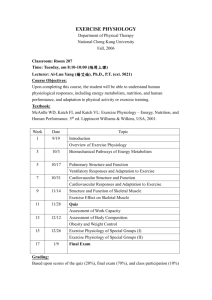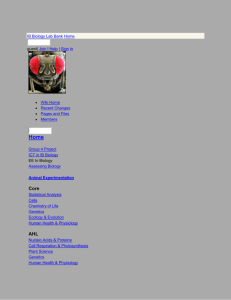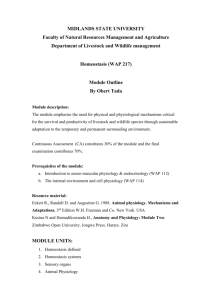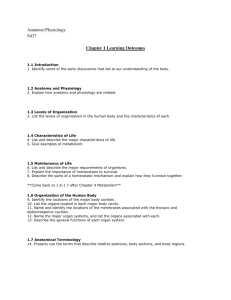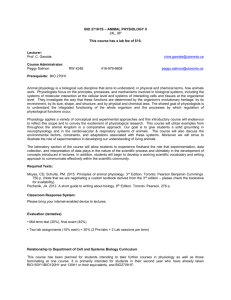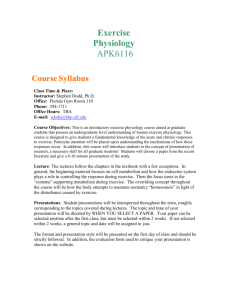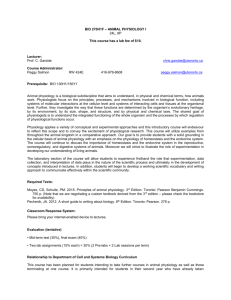Course Syllabus: Biol. 4160 Dr. Fernando Galvez Summer Special
advertisement
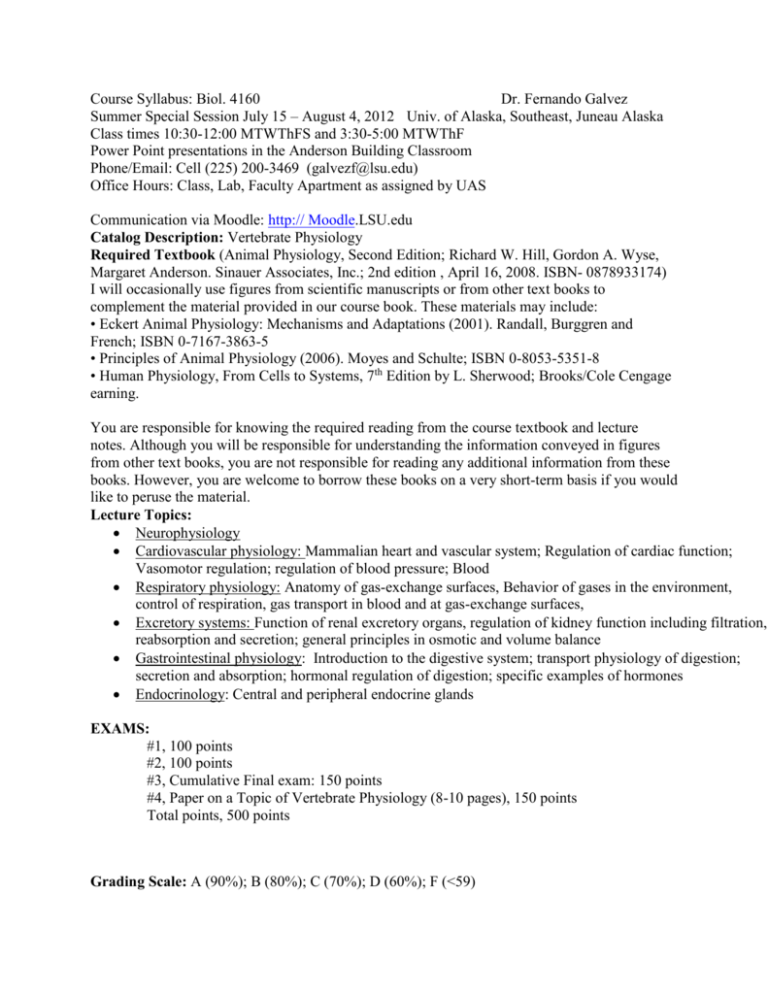
Course Syllabus: Biol. 4160 Dr. Fernando Galvez Summer Special Session July 15 – August 4, 2012 Univ. of Alaska, Southeast, Juneau Alaska Class times 10:30-12:00 MTWThFS and 3:30-5:00 MTWThF Power Point presentations in the Anderson Building Classroom Phone/Email: Cell (225) 200-3469 (galvezf@lsu.edu) Office Hours: Class, Lab, Faculty Apartment as assigned by UAS Communication via Moodle: http:// Moodle.LSU.edu Catalog Description: Vertebrate Physiology Required Textbook (Animal Physiology, Second Edition; Richard W. Hill, Gordon A. Wyse, Margaret Anderson. Sinauer Associates, Inc.; 2nd edition , April 16, 2008. ISBN- 0878933174) I will occasionally use figures from scientific manuscripts or from other text books to complement the material provided in our course book. These materials may include: • Eckert Animal Physiology: Mechanisms and Adaptations (2001). Randall, Burggren and French; ISBN 0-7167-3863-5 • Principles of Animal Physiology (2006). Moyes and Schulte; ISBN 0-8053-5351-8 • Human Physiology, From Cells to Systems, 7th Edition by L. Sherwood; Brooks/Cole Cengage earning. You are responsible for knowing the required reading from the course textbook and lecture notes. Although you will be responsible for understanding the information conveyed in figures from other text books, you are not responsible for reading any additional information from these books. However, you are welcome to borrow these books on a very short-term basis if you would like to peruse the material. Lecture Topics: Neurophysiology Cardiovascular physiology: Mammalian heart and vascular system; Regulation of cardiac function; Vasomotor regulation; regulation of blood pressure; Blood Respiratory physiology: Anatomy of gas-exchange surfaces, Behavior of gases in the environment, control of respiration, gas transport in blood and at gas-exchange surfaces, Excretory systems: Function of renal excretory organs, regulation of kidney function including filtration, reabsorption and secretion; general principles in osmotic and volume balance Gastrointestinal physiology: Introduction to the digestive system; transport physiology of digestion; secretion and absorption; hormonal regulation of digestion; specific examples of hormones Endocrinology: Central and peripheral endocrine glands EXAMS: #1, 100 points #2, 100 points #3, Cumulative Final exam: 150 points #4, Paper on a Topic of Vertebrate Physiology (8-10 pages), 150 points Total points, 500 points Grading Scale: A (90%); B (80%); C (70%); D (60%); F (<59)

